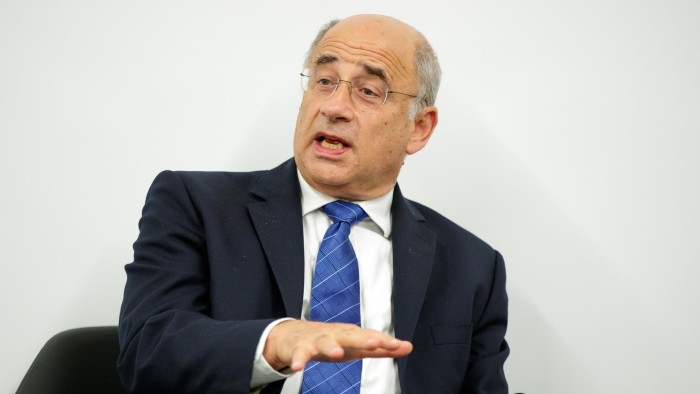Unlock the Editor’s Digest for free
Roula Khalaf, Editor of the FT, selects her favourite stories in this weekly newsletter.
Jury trials in England and Wales could be rolled back after ministers ordered a review of the court system, as new figures showed the backlog has almost doubled over five years.
Retired High Court judge Sir Brian Leveson will conduct a “once in a generation” review of the criminal courts that could result in some offences currently subject to jury trials being heard by magistrates, ministers announced on Thursday.
The review came as figures showed the backlog of Crown Court cases in England and Wales has almost doubled over five years to a record high of 73,000 at the end of September.
This had risen from 66,400 a year earlier, and 38,000 at the end of 2019.
Ministers have asked Leveson, best known for a public inquiry into the British press, to examine options for “fundamental reform” to find ways to ease pressure on the overloaded court system.
“It isn’t just about cash,” said courts minister Sarah Sackman KC. “If we simply threw money at having more sitting days and running the system at capacity it would not address the scale of the backlog. We need reform and modernisation.”
The review will include the possibility of expanding the powers of magistrates — in effect ending jury trials for some offences.
Sackman added: “Jury trials for the most serious cases are the absolute cornerstone of the British criminal justice system and will remain so.
“But if we are to effect the once-in-a-generation type of reform that is needed to grip the scale of the crisis we are in we are going to have to think boldly.”
Options Sir Brian will also consider include the case for a new “intermediate court” that would sit between magistrates and crown courts.
The suggestion for a middle tier of court was made in a previous report by the Lord Justice Robin Auld, which was commissioned by Tony Blair’s government in the 2000s, but was never implemented.
The announcement was met with scepticism among barristers.
Mary Prior KC, chair of the Criminal Bar Association, said “yet another independent review” would “not fix the current problems”.
While she said the bar was willing to assist any review, she added: “Action and investment into the criminal courts system is needed now.”
The data release on Thursday was delayed by several months after officials identified “inaccuracies” in some of the data. Previously published figures had to be restated because of errors.
The review follows increasingly outspoken comments from senior members of the legal establishment about the state of the cash-strapped court system.
Baroness Sue Carr, the lady chief justice, was critical last month of ministers’ refusal to fund more criminal court sitting days, which she said had a “drastic effect” on the system.



